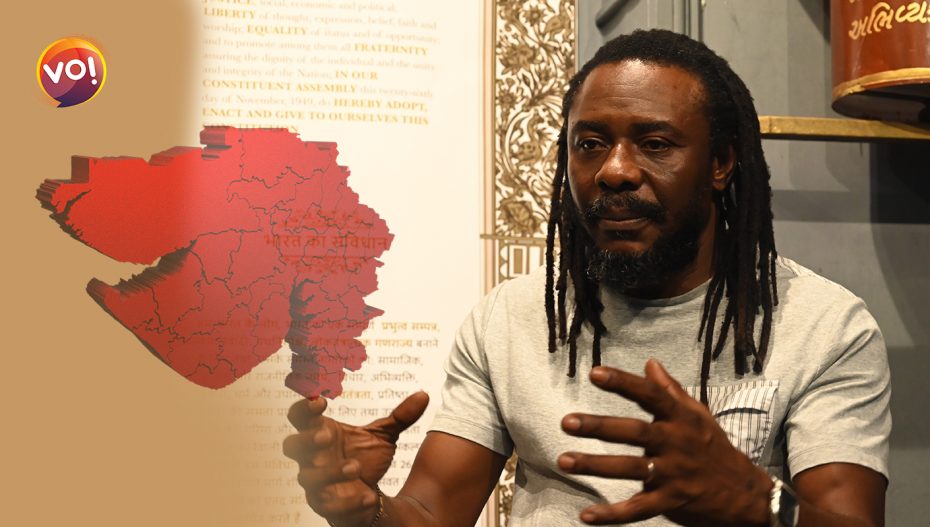Uche James Iroha is a Nigerian currently visiting Gujarat. The visual artist is director, “Photo Garage” in Lagos, an organization that offers a platform for local and global intellectual photographic exchange. He also helms “Depth of Field,” a photography collective based in Lagos where he resides.
But why is he in Amdavad? “A quest has brought me here. Much like the hustle on streets back home, this city pulsates with life and action. I am here to study Nigeria and India and the distinct socio-cultural patterns that, in ways, bind the two countries,” he shares.
When prodded further, he shares: “Many similarities but the one huge difference is a gaping hole. There is an unsaid rule about how much one can question. Gujarat can be freer. There needs to be more freedom of movement, expression and question. There is an unsaid line about what can be said and what can’t be, who can be approached and who cannot. The ability to question is missing in Gujarat.”
He draws on the similarities too. “In hometown Lagos too, the airport is flashy and there is a huge ‘welcome’ sign. However, questioning minds are not welcomed here,” shares the artist.
Irohe’s work depicts bodies in context, exploring the physicality of existence in the mix of cultures and influences that is 21st century Lagos – a megacity in Nigeria with urgent social issues. Through his diverse body of work, he addresses wide-ranging issues from economic imperialism to the brutal relations existent between races, social class, and gender.
He is currently visiting India to explore the socio-cultural, historical, and political parallels between India and Nigeria, thus attempting to articulate newer forms of visual literacy and explore the sensibilities of South-South intimacies and interconnectedness.
Where do you find inspiration? “My daily to-do list is my inspiration. Life is tough in Nigeria. You struggle for petrol, food and fight inflation–India, or say Asian countries are undergoing similar struggles.”
“Nigeria and India both were colonised by the British. Today, both are undergoing similar conflicts, narrations and restrictions. I’m trying to explore, draw parallels between them and present it before people in audio-visual form.” adds Iroha.
Through his diverse body of work, he addresses wide-ranging issues from economic imperialism to the brutal relations existent between races, social class and gender.













